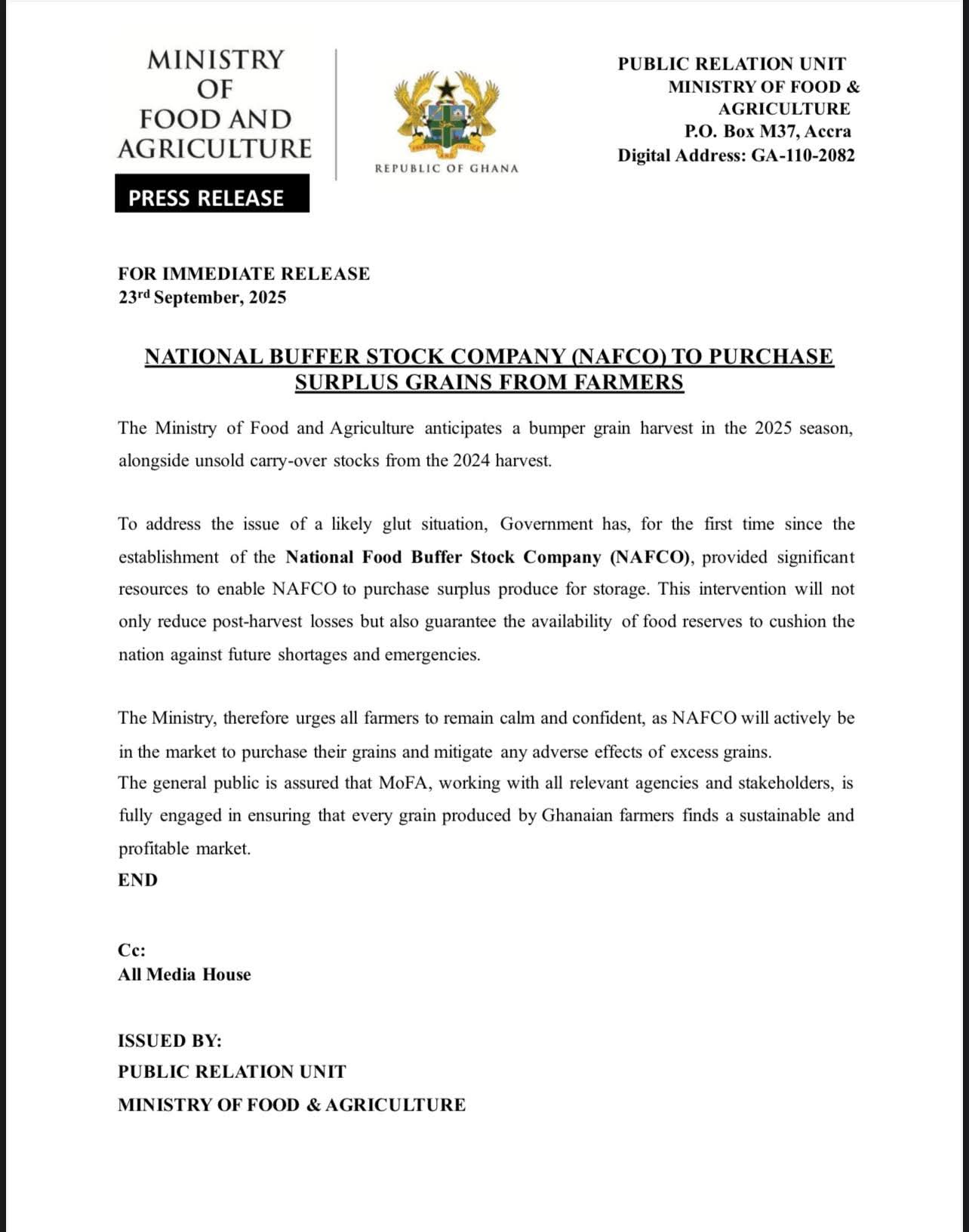The government has directed the National Food Buffer Stock Company (NAFCO) to purchase excess grains from farmers across the country in anticipation of a bumper harvest in 2025.
According to the Ministry of Food and Agriculture (MoFA), the move is aimed at preventing a potential market glut, as this year’s expected high yields come on top of large volumes of unsold grains from the 2024 harvest.
In a statement, the Ministry noted that this is the first time since NAFCO’s establishment that such significant resources have been allocated for large-scale grain procurement and storage.
The initiative is expected to minimise post-harvest losses and build up strategic reserves to safeguard the nation against future shortages and emergencies.
MoFA assured farmers that NAFCO will be present in the market to absorb their produce, offering a ready market, stabilising prices, and easing their concerns.
“The Ministry, working in collaboration with relevant agencies and stakeholders, is committed to ensuring that every grain cultivated by Ghanaian farmers finds a sustainable and profitable market,” the statement added.
The intervention is expected to provide relief to farmers, strengthen the food supply chain, and boost Ghana’s food security outlook.
This follows concerns raised by the Chamber of Agribusiness Ghana (CAG), which recently warned that the grain sector was “on the brink of crisis,” with more than 100,000 metric tonnes of maize and rice from 2024 still unsold.

The Chamber blamed the glut on cheap imports and smuggled substandard grains, which have left many farmers indebted and forced them to sell below production cost, putting local processors at risk.
“With the 2025 harvest fast approaching, the challenge could worsen, threatening livelihoods, collapsing mills, and undermining national food security,” CAG cautioned.
The Chamber further alleged that rice and maize are being smuggled into the country without paying duties or undergoing quality checks, often aided by corrupt border officials.
It warned that the practice not only deprives the state of vital tax revenue but also destabilises farmer incomes, weakens the local value chain, and increases Ghana’s dependence on imports.
Source: Adomonline
ALSO READ:



